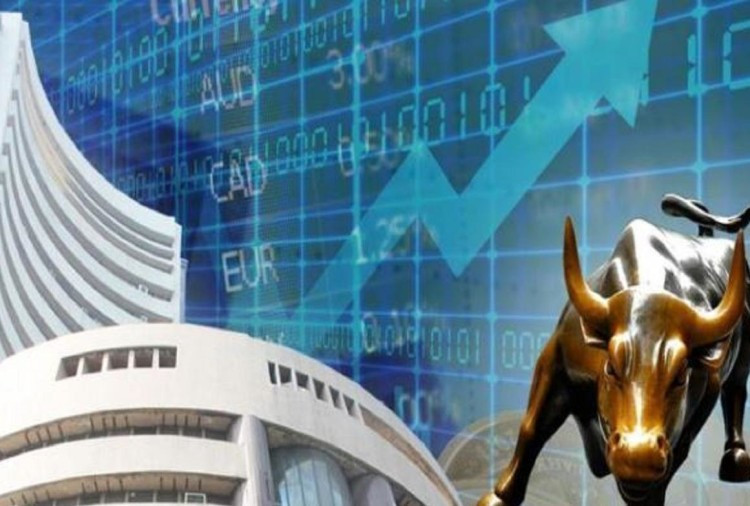A combination of policy foresight, technological advancements, and a youthful demography is set to transform India’s stock market by 2047. This growth is happening on the back of significant expansion that is being witnessed over the past two decades, largely driven by increased participation from domestic institutional investors (DIIs) and retail investors in the post-Covid period. To give an example, the market valuation of BSE-listed firms has surged 45 times, reaching over Rs 450 lakh crore ($5 trillion) as of August 2024, compared to Rs 10 lakh crore in 2003.
If the economy continues to grow steadily, India’s equity market could sustain this upward trajectory. Projections indicate that the Indian economy could reach $30-35 trillion by 2047, assuming an 8-9% growth rate, potentially elevating India to developed economy status. With a market cap to GDP ratio of 1.5x, the market capitalisation of BSE-listed firms could hit $45 trillion by 2047. Even with a more conservative growth rate of 7-7.5%, the economy could be valued at $15-20 trillion, quadrupling the market cap over the next 23 years.
However, this growth is not just about numbers; it also involves an increase in the number of investors and listed companies. Currently, India has around 170 million unique customer codes (UCCs), which could double or even quadruple by 2047. With a young population and along with it, rising disposable incomes, more individuals are likely to invest. According to NITI Aayog, per capita income is expected to reach $18,000 by 2047, up from the current $2,500.
The number of listed companies is also expected to triple, rising from 4,500 to around 12,000-12,500 by 2047, with more small and medium enterprises (SMEs) entering the market. At present, about 1,000 SMEs are listed, but with over 500,000 SMEs in India, even with a small percentage joining could significantly boost market growth. As India transitions into a developed economy, we could see full currency convertibility and the country emerging as a financial hub, with commodities and debt becoming major asset classes.
Regulatory Advancements and Market Efficiency
In this growth narrative, the role of regulatory advancements and that of the market regulator cannot be overstated. Over the past 20 years, the stock market has become more accessible, with democratised access to information and trading platforms, further accelerated by technological progress. Trading has shifted from brokers’ offices to desktops and mobile phones, as reflected in the surge of new investors over the last three years. Today, India’s market is well-regulated, with no unregistered trades, and many risks have been mitigated by regulators. Looking ahead, the Securities and Exchange Board of India (Sebi) may focus more on product development and market efficiency while continuing to prioritise investor protection. Stock exchanges will also play a key role by addressing market gaps and introducing new products and mechanisms.
The Role of Stock Markets in Nation-Building
The stock market plays a crucial role in nation-building by facilitating capital formation. Companies raise essential funds through primary markets for infrastructure and development projects, while the secondary market provides liquidity, making these investments attractive. Additionally, derivatives markets support price discovery and liquidity in the secondary market. Stock markets also attract foreign investors, bringing in capital and creating jobs, which in turn boosts manufacturing as foreign firms establish themselves in India.
The Ripple Effect: Stock Markets and Technological Growth
The ripple effect of increased stock market participation has already fuelled a surge in the sales of smartphones and laptops, which are now essential tools for trading and investment activities. This trend is expected to expand beyond just these devices, driving demand for other electronics such as tablets and home office equipment. As more people embrace digital platforms for financial transactions and investments, the growing consumption of technology will, in turn, stimulate manufacturing sectors and create additional employment opportunities across the electronics and allied industries.
Challenges and Emerging Trends
However, traditional capital markets are not without competition. Online gaming and cryptocurrencies, for example, are emerging as alternatives to traditional investments. While they aren’t yet a significant threat, regulatory uncertainties and potential cyber risks make them a concern. Policymakers must decide whether to regulate these sectors or monitor them closely. Fantasy sports and online gaming platforms, which are popular among young investors, offer an alternative investment avenue that could divert funds from traditional markets. Similarly, cryptocurrencies, despite their volatility and ambiguous regulations, attract tech-savvy youth, posing a challenge for regulators. Therefore, the regulator needs to keep a keen eye on these areas.
The Future is Bright
Overall, the Indian stock market is poised for continued growth, bolstered by strong inflows from DIIs and systematic investment plans (SIPs) from retail investors. With a strong foundation of regulatory frameworks and the continued embrace of technology, India's stock market is well-positioned to achieve its ambitious goals, potentially becoming a global powerhouse by 2047.
As told to Rahul Oberoi. The author is MD & CEO, BSE. Views are personal
Copyright©2024 Living Media India Limited. For reprint rights: Syndications Today


















